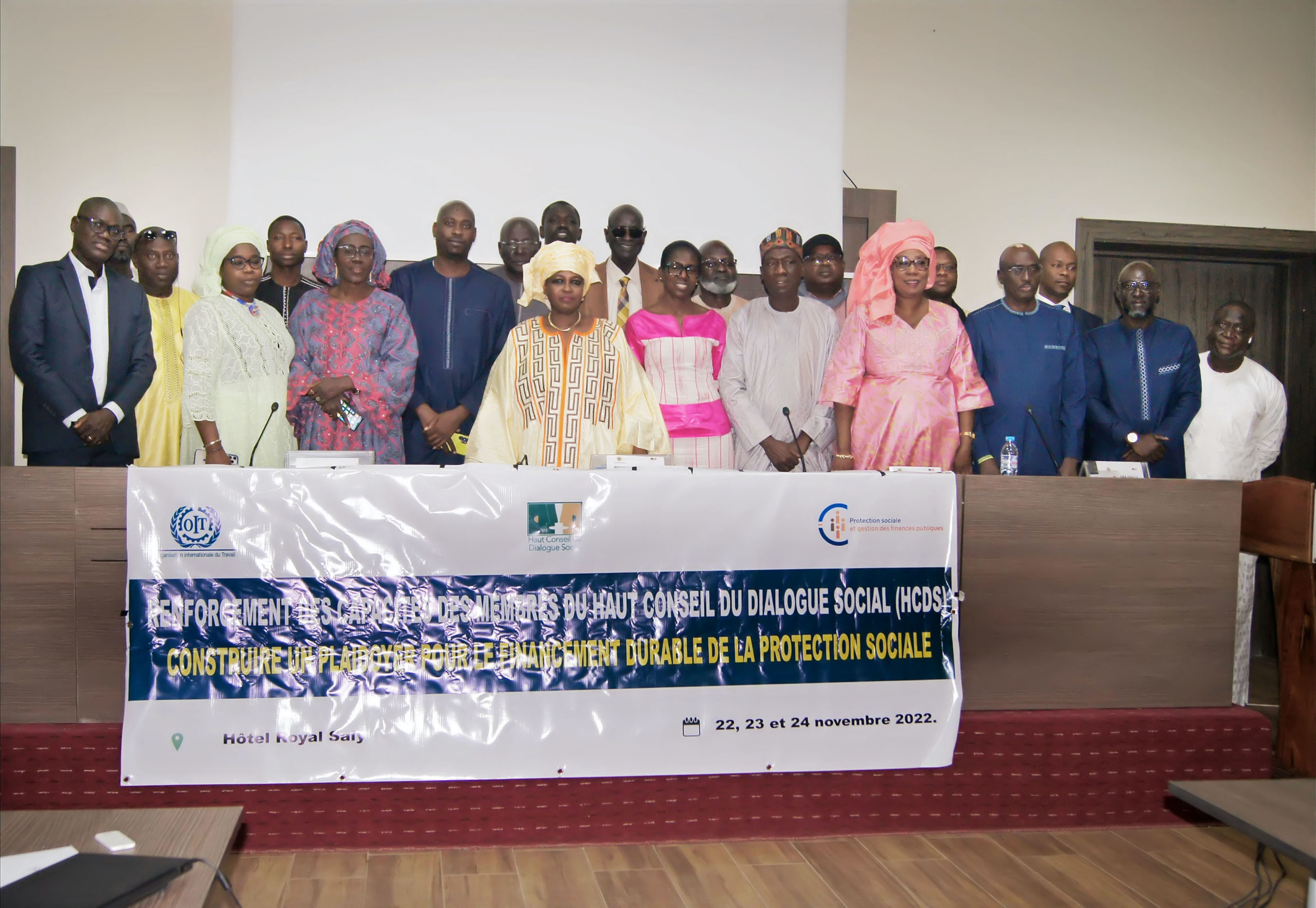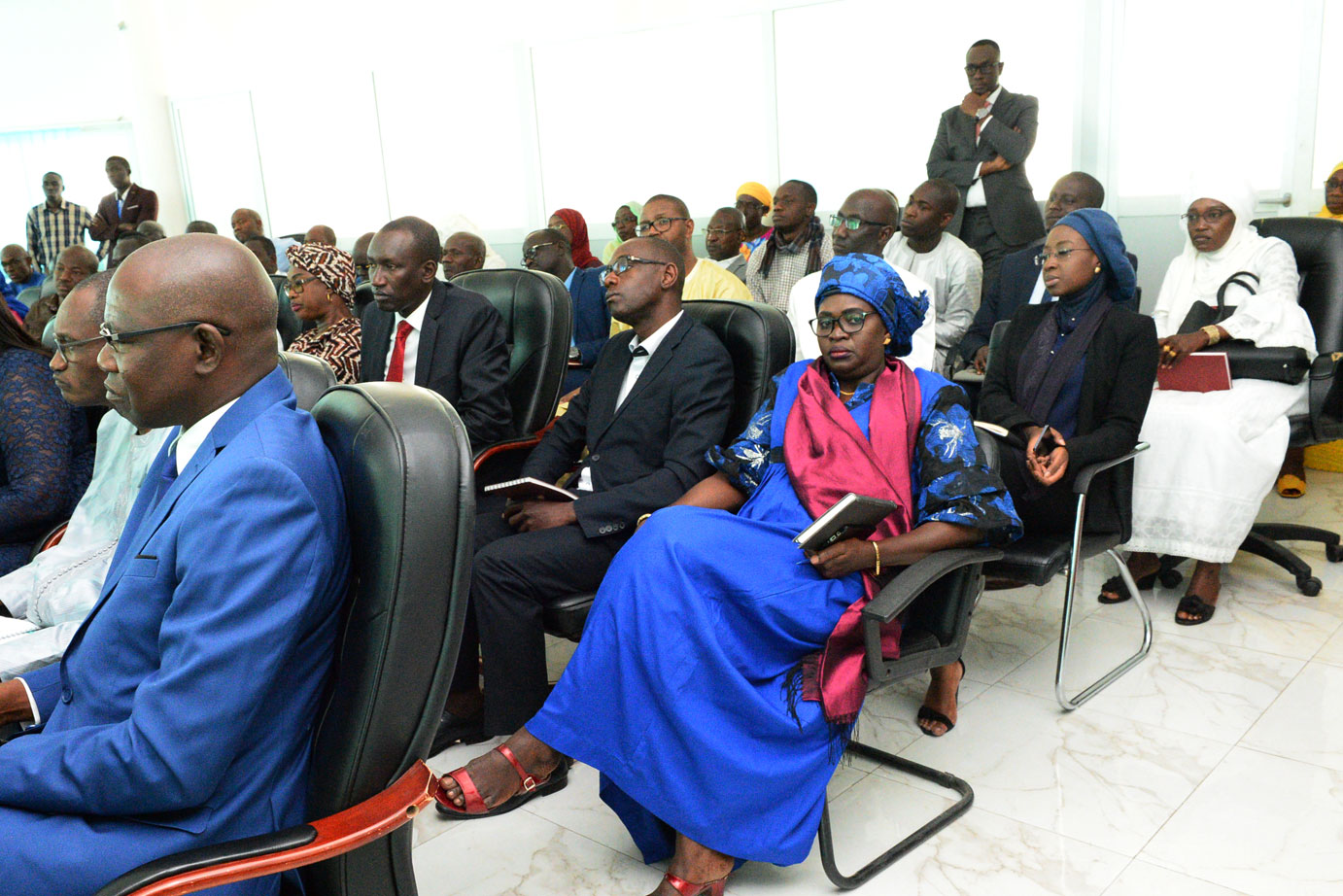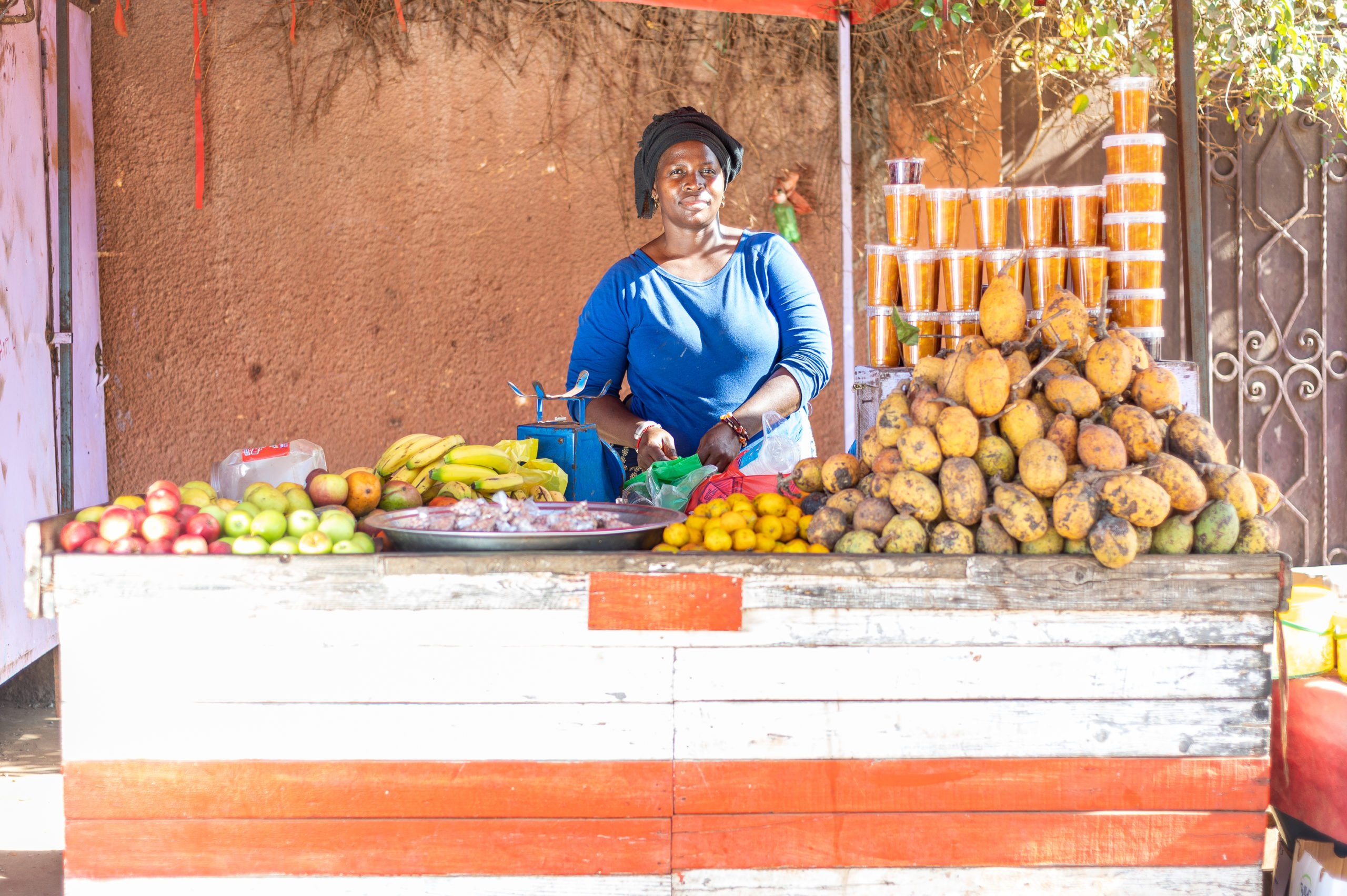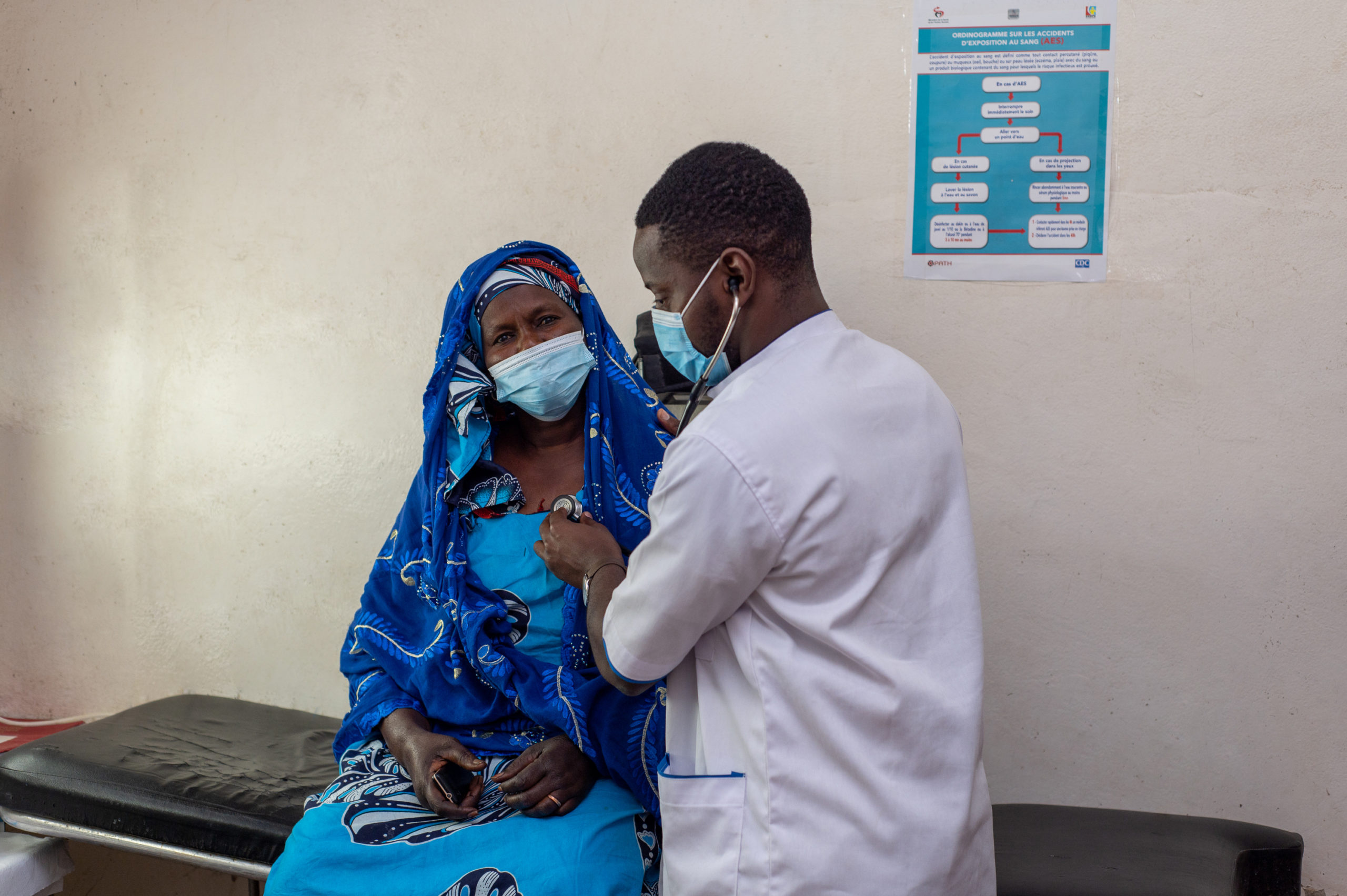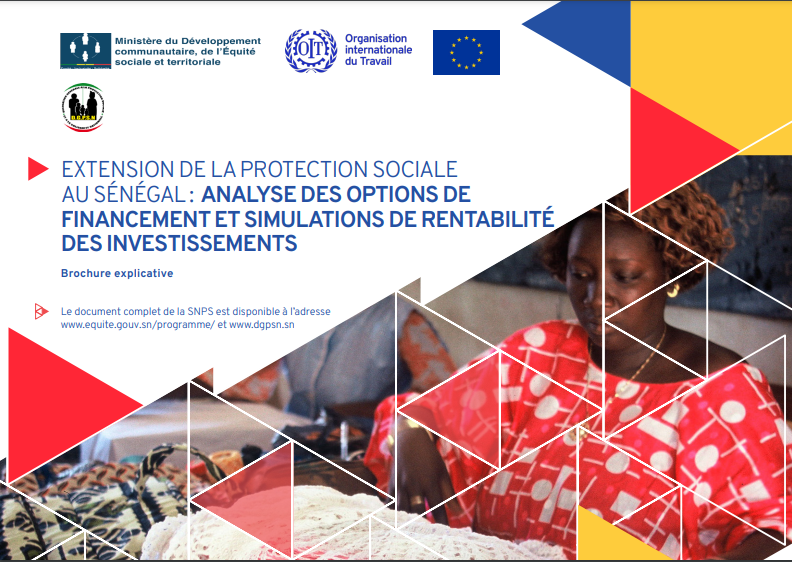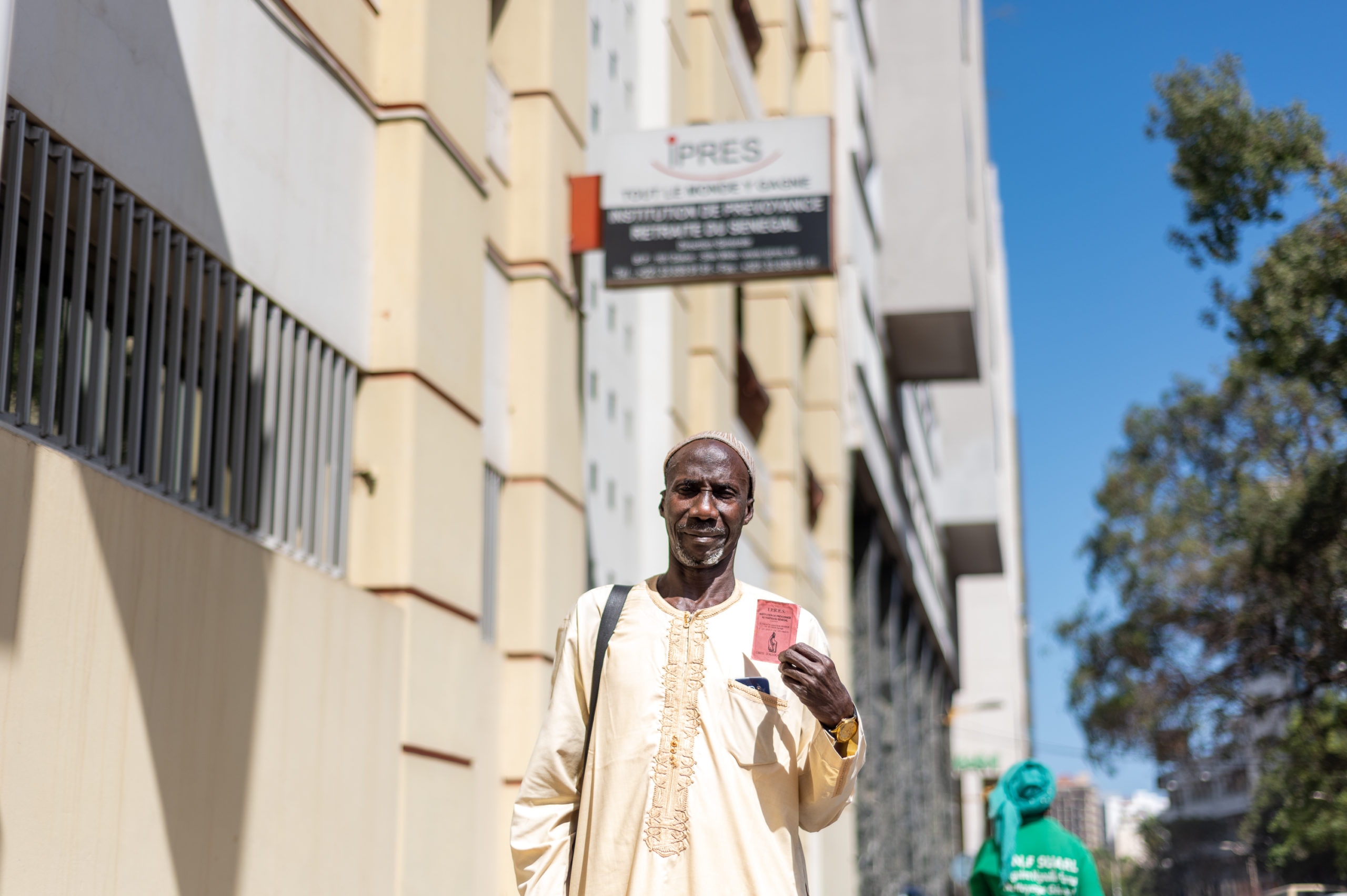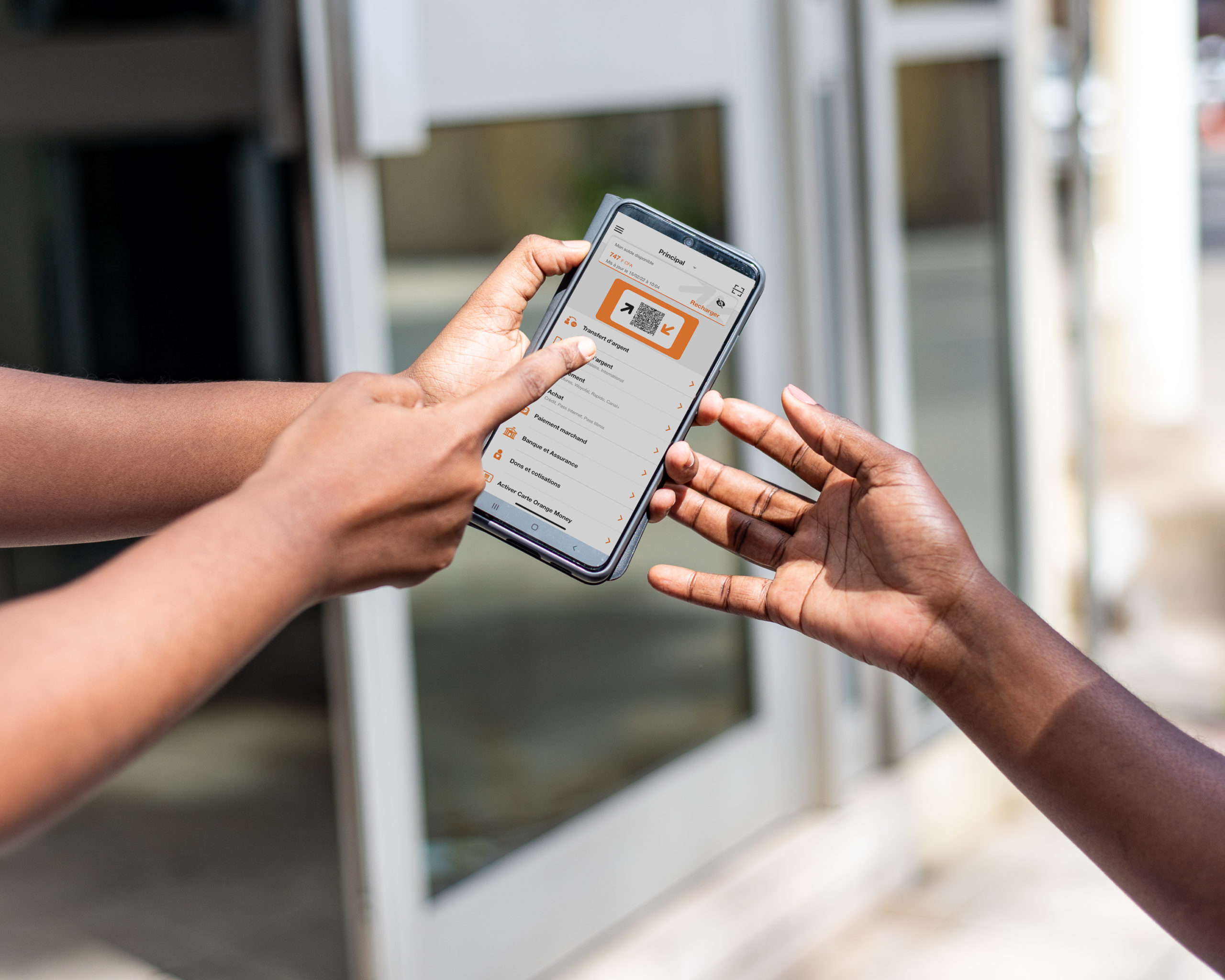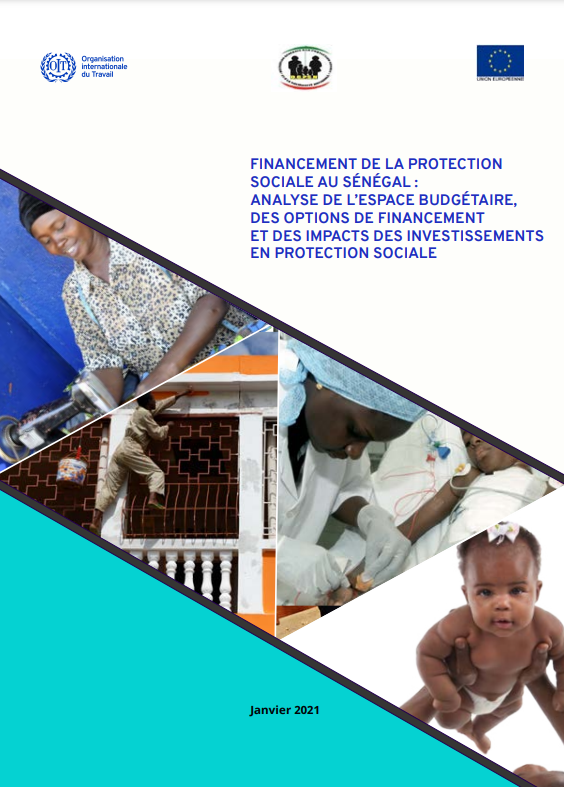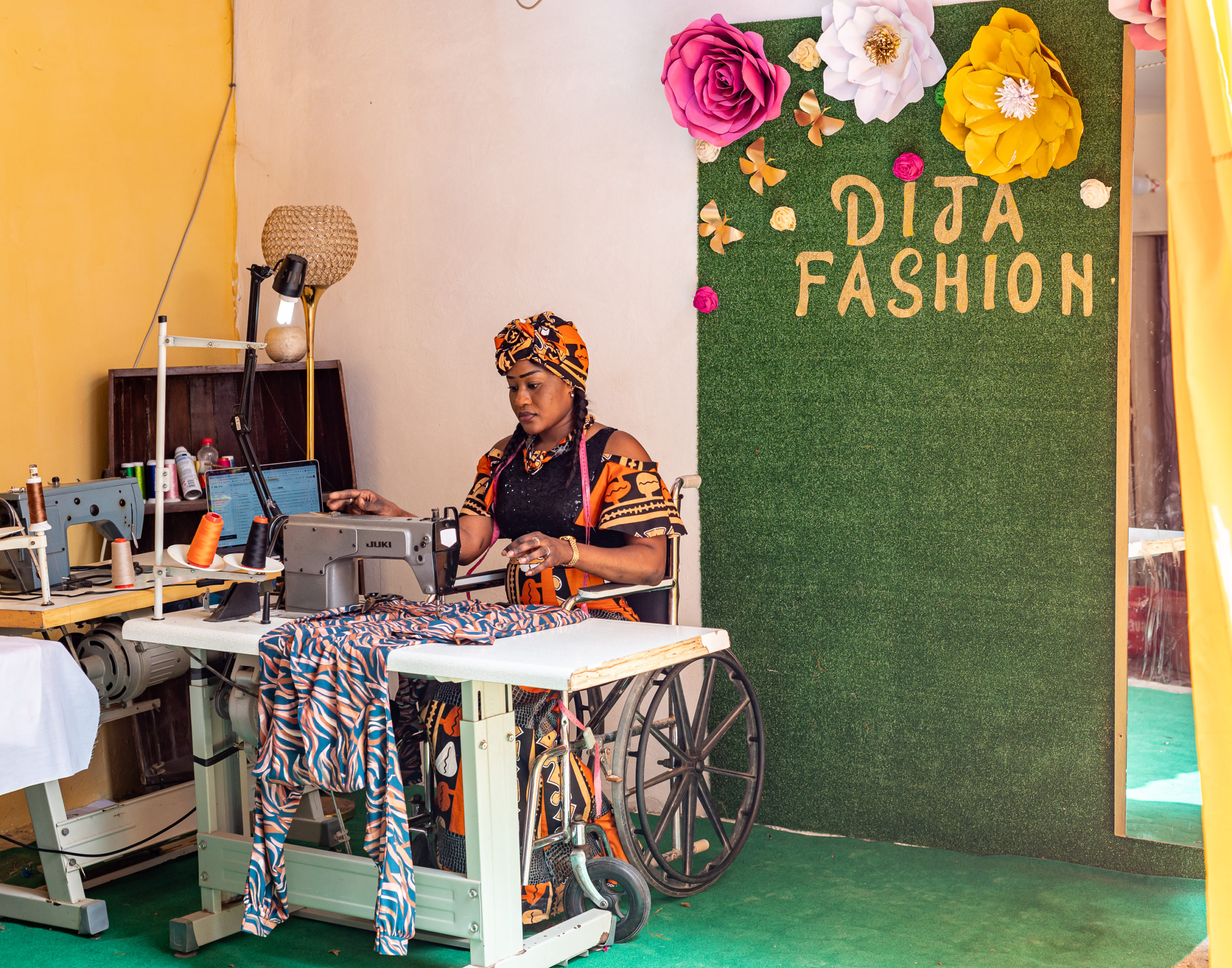Senegal
Over 1,8 million persons covered by the social registry
Over 210,000 households added to the social registry.
Benefit level of family security grant increased by 40%
Reallocation of public expenditure in favour of social programmes meant that the family grant benefit increased from 25,000 FCFA to 35,000 FCFA from April 2023. This benefit has direct impact on 2.7 million people.
Social protection and financing network set up by the Senegalese parliament
The network will reinforce social protection system and norms, extension strategies, financing approaches and programme-based budgeting, thus supporting the sustainability of the measures taken and their impact in the long run.
The project Consolidating the financial sustainability and coverage of the social protection system in Senegal provided technical assistance to the country to establish a comprehensive and inclusive social protection system, supported by adequate and sustainable financing, transparent governance and targeted measures. The joint action aimed to extend social protection coverage to vulnerable groups not yet covered, in particular persons with disabilities and workers in the informal economy.
The Government of Senegal considered the extension and strengthening of social protection a fundamental element of its economic and social development strategy, as reflected in the National Social Protection Strategy. Under the coordination of the General Delegation for Social Protection and National Solidarity (DGPSN), this strategy aimed to establish universal and inclusive social protection by 2035. However, the coordination of the social protection system remained a challenge with i) an institutional environment that needed to be clarified, ii) fragmentations and duplications of social protection interventions by development partners, especially at the decentralised level and often beyond the control of national coordination, iii) an absence of coordination mechanisms at the decentralised level, etc. To address these issues, the project worked jointly with the national institutions to build the capacity of actors at the decentralised level to improve coordination mechanisms, such as the establishment of regional social protection platforms.
It is important to note that the government of Senegal made efforts in terms of financing social protection. In 2018, UNICEF and the Ministry of Economy produced a study analysing social expenditure over the period 2013-15. This study showed a positive evolution of public expenditure on social protection. The share of the social protection sub-sector (including resources allocated to CMU) in overall public spending on social protection and health increased from 14% in 2013 to 19% in 2014, then to 28% in 2015 (UNICEF and MEFC, 2018). Despite these efforts, the establishment of a mechanism to monitor public spending on social protection remained a major challenge that the project sought to address in its implementation.
In 2019-20, a comprehensive review of the social protection system conducted by the ILO, with the support of the European Union allowed the identification of policy scenarios for extending the social protection system ensuring the effective implementation of the National Social Protection Strategy. The scenarios were based, in particular, on the mobilisation of new potential sources of financing and the extension of coverage, which remained polarised between formal salaried employment and social assistance.
Thus, the joint action aimed at exploring options and recommendations for sustainable financing of social protection and supporting the extension of social protection coverage. In addition, the activities allowed the application of these recommendations to secure social protection expenditure through the government budget, but also at the legal level.
Key results achieved
The project achieved the following results:
- Government actors, particularly those of the Social Budget Monitoring Observatory (OSBS), parliamentarians and civil society have been sensitised and had their capacities strengthened in terms of financing social protection and its importance, through a series of advocacy and training activities.
- Ways of improving and extending the Equal Opportunity Card programme were clearly identified and budgeted for, for better inclusion of people with disabilities in the social protection system.
- The effective implementation of the simplified social security scheme for workers in the informal economy (RSPC) was supported through the identification of incentives and the effective inclusion of gender in the scheme and the pilot phase of the health branch.
- Support was provided to the General Directorate of Labour and Social Security (DGTSS) to improve communication and transparency of information with the general public.
- Support was given to the DGPSN to update the Single National Register (RNU) which is the essential tool for targeting social protection programmes. Support for the establishment of regional social protection platforms was also provided.
- The project placed emphasis on bringing together 25 CSOs and trade unions organisations, strengthening their capacity on various topics including public finance management, social protection, lobby and advocacy, power-mapping analysis on PFM. This enabled them to carry out a number of advocacy activities with central and local government for sustainable funding of social protection programmes for workers and the most vulnerable populations. These included programmes for rural workers and those in the informal economy (payment of arrears of public subsidies as a contribution to mutual health insurance schemes in the framework of universal health coverage), persons with disabilities (CEC) and the elderly (Sesame).
-
This allowed the actors (CSOs and trade unions) to develop and disseminate two position papers: (1) a memorandum to the executive of the country’s 14 administrative regions to raise awareness of the need for better consideration of social protection issues in the national budget and (2) a Charter of Commitment of local authorities (elected communal officials) to ensure adequate financing of social protection, with consideration of gender and people living with disabilities. Other lobby and advocacy activities were directed towards the Cabinet of the head of the state (advisor in charge of social protection) and some sectorial ministries in charge of social protection.
Resources
- Brief on providing adequate social protection for women in the informal sector in Senegal
- Study on financing social protection in Senegal (French), Brochure (French) and Summary presentation of the main findings (French)
- Global review and analysis of the national social protection system in Senegal (French)
- Study on the extension and improvement of the Equality Opportunity Card (CEC) scheme
- Action plan for improved inclusion of persons with disabilities (CEC) (French)
- Brochures for online training courses offered to technical social protection actors as part of the project
- Project Presentation for Senegal (French)
- Summary sheet on social protection in Senegal (French)
- Report on incentives to formalization and to registration to the Simplified Social Security Regime for Small Contributors (French)
- Thematic FAQ on social security and labour rights on the website of the Delegation of Labour and Social Security (DGTSS) in video, written format and on social media networks (Facebook and Youtube)
- Report on incentives to formalise and join the Simplified Social Protection Scheme for small taxpayers (2022)
- Charter of Commitment of local authorities (elected communal officials) to ensure adequate financing of social protection, 2021 (In French)
- Leaflet of the Charter of Commitment of local authorities (elected communal officials) to ensure adequate financing of social protection, 2021 (In French)
Events
- Technical training for members of the High Council for Social Dialogue on the promotion of sustainable funding for social protection, 26 November 2022
- High-level meeting with the Ministry of Economy to present SP&PFM technical study on the fiscal space for social protection in Senegal, October 2022
- SP&PFM in Senegal holds a Steering Committee meeting
- High-level international conference on the extension of social protection and its financing – 11/19/2020, 11/26/2020, 12/03/2020
- GCSPF Steering Committee meeting, 23rd April 2021 (French)
Project partners
The project was jointly developed by the ILO, UNICEF, the European Union Delegation (DUE) in Dakar, the Government of Senegal – through the General Delegation for Social Protection and National Solidarity (DGPSN) of the Ministry of Community Development, Social and Territorial Equity, the Ministry of Finance and Budget; and the Ministry in charge of Labour – civil society under the lead of We Social Movements (WSM), and social partners.
Contacts
Mr. Dramane Batchabi, ILO Social Protection Specialist, batchabi@ilo.org
Mr. Moussa Dieng, ILO National Project Coordinator, dieng@ilo.org
Mr. Ousseini Ouedraogo, UNICEF, National Social Protection Officer, ousouedraogo@unicef.org
Mr. Valère PIHOUN KOFFI, Continental Coordinator WSM, West Africa, valere.koffi@wsm.be
Financing and extending social protection in Senegal. Progress and challenges. July 2022 (in French).
Remarks of Innocence Ntap Ndiaye, President of the HCDS, during the technical training for HCDS members. November 2022 (in French).
Technical training for HCDS members. November 2022.
High-level meeting with the Ministry of Economy to present SP&PFM technical study on the fiscal space for social protection in Senegal. October 2022.
A worker going to pay her social security contributions at the post office, Dakar, 14/01/2022.
A street vendor selling fruit, Dakar, 14/01/2022.
A doctor examines a patient during a medical consultation. RSPC health branch. Dakar, 05/03/2022.
A member holding his insurance card in front of the IPRES office, Dakar, 14/01/2022.
Mobile banking, an important tool for cash transfers in Senegal, Dakar, 14/01/2022.
A wheelchair-bound female entrepreneur in her office, Dakar, 19/02/2022.

